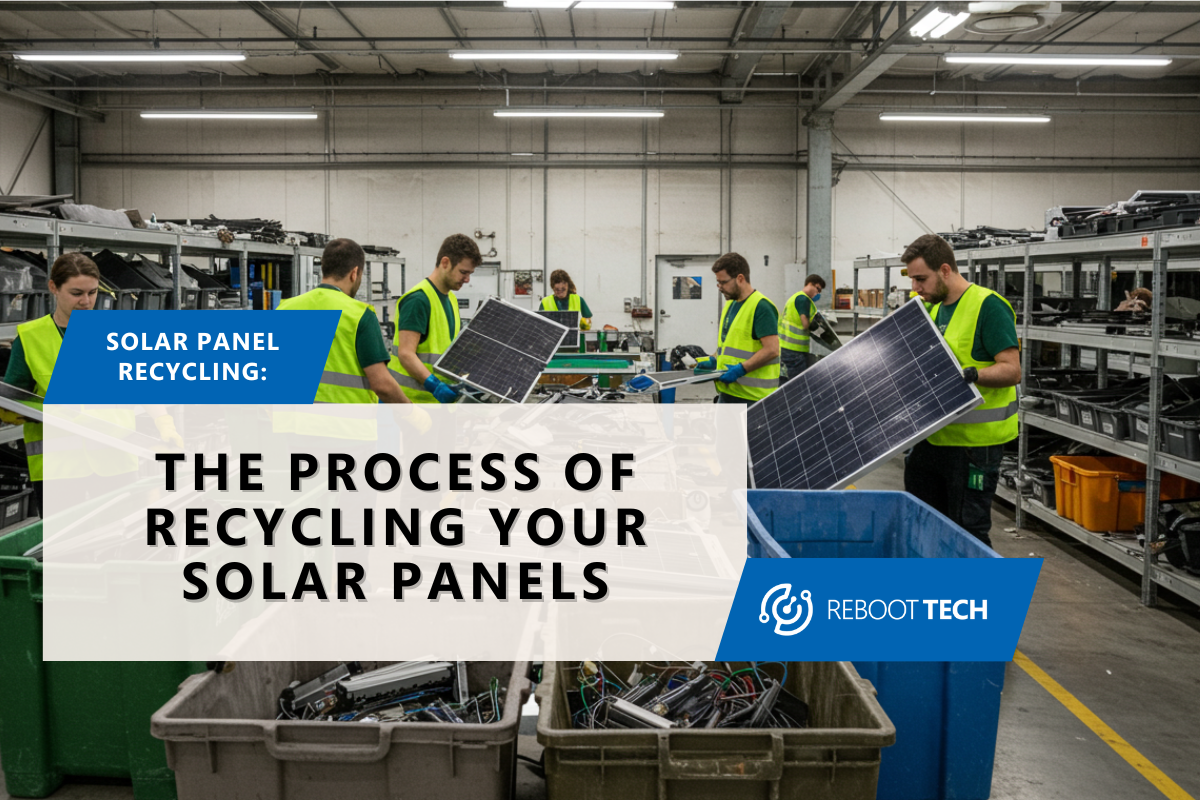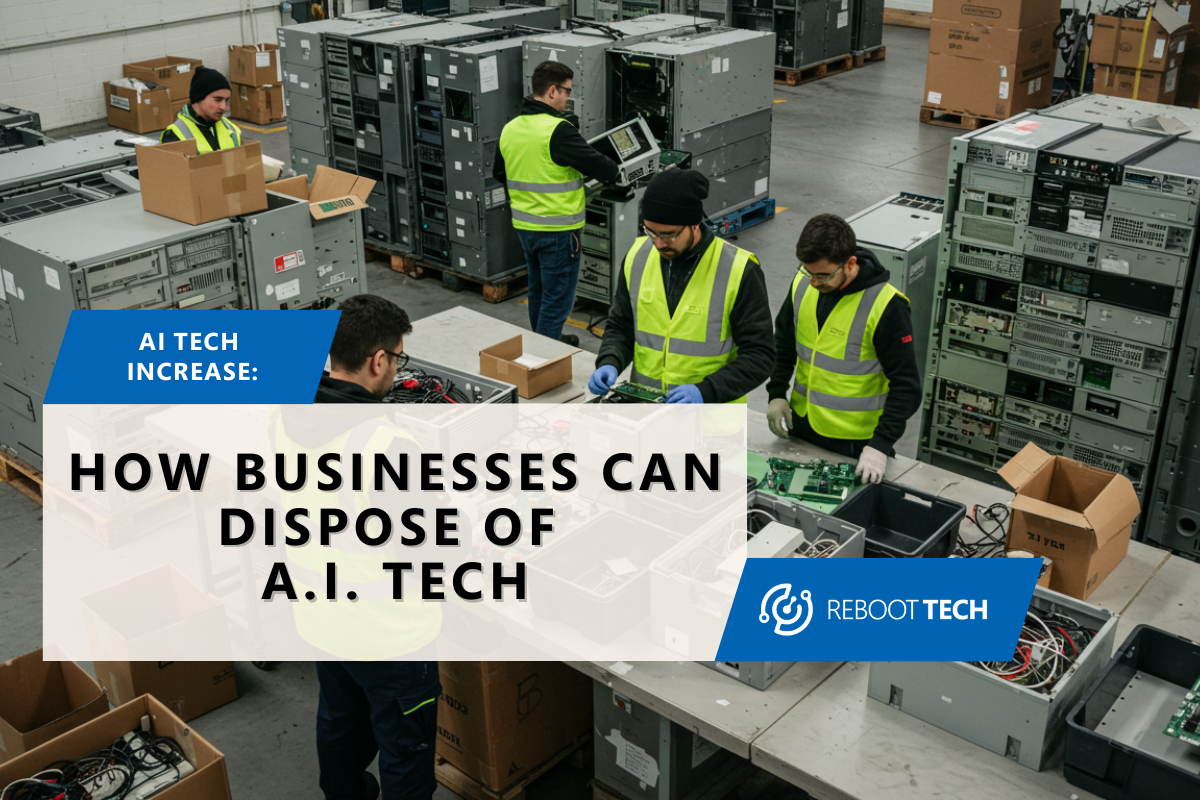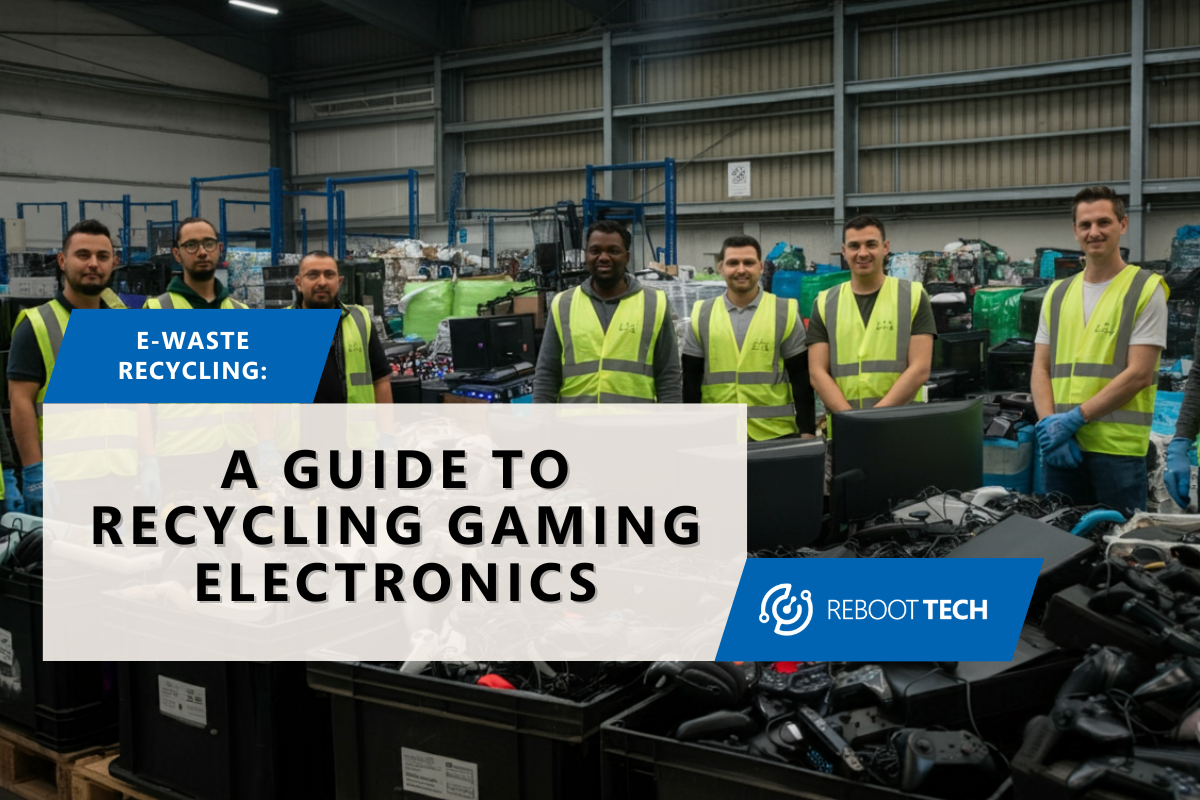
A Guide to Recycling Gaming Electronics
Have you ever upgraded your gaming setup and wondered what to do with your old gear? The dusty PlayStation 3 is in the attic. The old Xbox controllers are in a drawer. The outdated gaming PC is also there. These items are more than just old games.
They’re potential e-waste, a growing environmental concern. But don’t worry, you don’t have to let them end up in a landfill. This guide will walk you through everything you need to know about how to recycle gaming equipment responsibly.
In this article, we will explore gaming electronic waste, or e-waste. We will look at what it is and why it is a problem. Most importantly, we will discuss how you can help solve this issue.
We will discuss what counts as gaming e-waste. We will also find the right recycling centers. Finally, we will explain the recycling process. So, if you’re ready to level up your environmental consciousness and give your old gaming gear a second life, keep reading!
We’ll cover the following topics:
- The growing problem of gaming e-waste.
- Identifying what gaming equipment is considered e-waste.
- Where you can recycle your old gaming gear.
- A look at the recycling process.
The Rise of Gaming E-Waste
Gaming has exploded in popularity over the past few decades. From simple arcade games to immersive virtual reality experiences, the gaming industry has constantly evolved. But this growth comes at a cost.
As technology advances and new consoles and PCs are released, older models quickly become obsolete. This leads to a significant increase in electronic waste (e-waste), specifically from gaming equipment and other consumer electronic devices.
E-waste contains hazardous substances like lead, mercury, and cadmium, which can leach into the soil and water, harming the environment and human health. Improper disposal of gaming equipment, such as video game consoles or mobile phones, contributes to this problem.
Landfills are overflowing with discarded electronic products, posing a serious environmental impact. The increasing demand for new gaming technology only exacerbates this issue, making responsible waste management and recycling more crucial than ever.
What Gaming Equipment is E-Waste?
So, what exactly counts as gaming e-waste? It’s more than just old consoles. Here’s a breakdown:
- Consoles: This includes everything from classic game systems like the Nintendo Entertainment System (NES) to modern PlayStation, Xbox, and Nintendo Switch systems.
- Controllers: Wired and wireless controllers, joysticks, racing wheels, and other input devices fall into this category.
- Gaming PCs and Components: This includes desktop computers, laptops, graphics cards, motherboards, hard drives, and other internal components specifically used for enhancing the gaming experience.
- Peripherals: Monitors, keyboards, mice, headsets, speakers, and webcams used for gaming are also considered e-waste.
- Accessories: Power cords, cables, adaptors, and other accessories associated with gaming equipment.
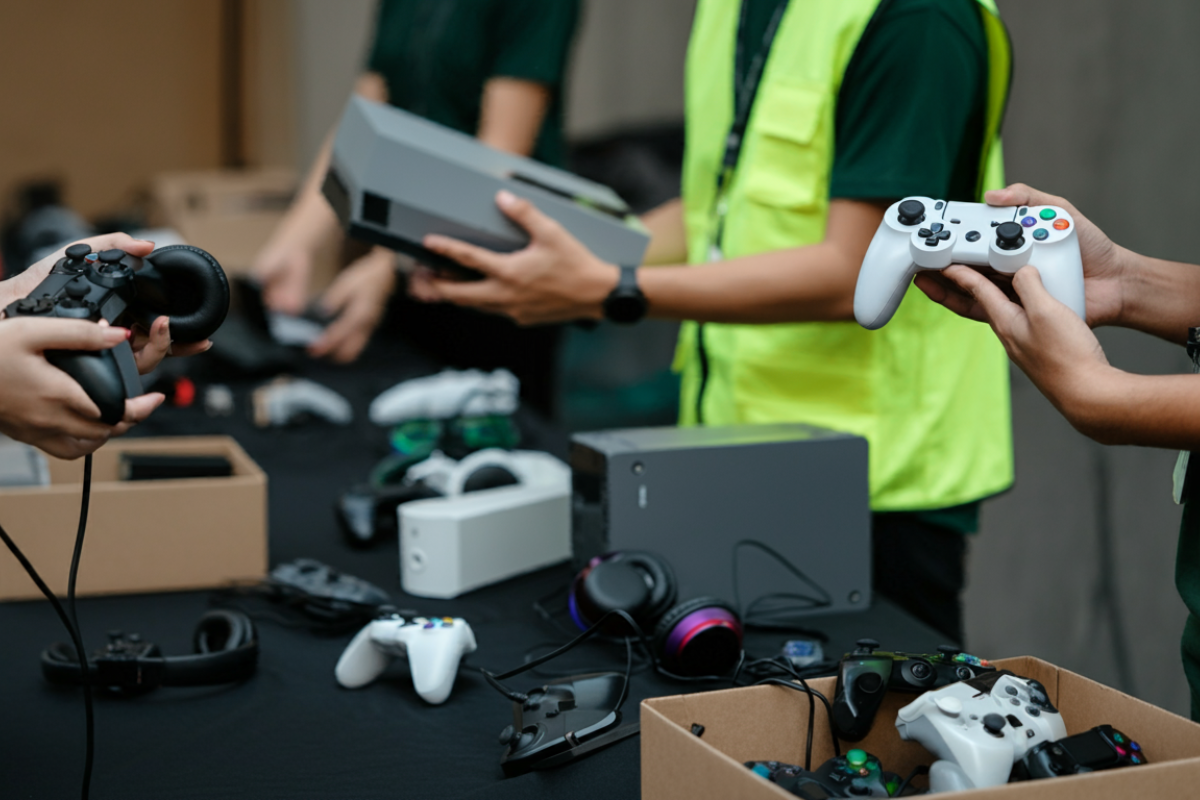
Basically, if it’s an electronic product and used for gaming, it likely qualifies as e-waste and needs proper recycling. Even older devices like cathode ray tubes from retro setups should be handled responsibly, given the hazardous chemicals they may contain.
Where to Recycle Gaming Equipment
Now that you know what gaming equipment is e-waste, the next step is finding where to recycle it. Here are a few options:
- Manufacturer Take-Back Programs: Many gaming companies, such as Microsoft, Sony, and Nintendo, offer take-back programs where you can send in your old consoles and accessories for recycling. Check their websites for details.
- Local E-Waste Recycling Centers: Most communities in the United States have dedicated recycling facilities that accept a wide range of electronics, including gaming equipment. Search online for “e-waste recycling near me” to find local options.
- Retailer Recycling Programs: Some electronics retailers, like Best Buy, offer recycling programs for electronics, including video game consoles and accessories.
- Charities and Non-Profits: Some charities and non-profit organizations accept donations of working gaming equipment, which they then refurbish and donate to those in need. This is a great option if your equipment is still functional.
Before taking your equipment to any recycling center, it’s a good idea to check their specific guidelines and accepted items. Many facilities have procedures in place to safely handle toxic chemicals and hazardous wastes.
The Recycling Process
The recycling process for gaming equipment involves several steps:
1. Collection and Sorting: The equipment is collected from various sources and sorted by type, whether they’re video game consoles, mobile phones, or other electronic products.
2. Dismantling: The equipment is manually or mechanically dismantled into its component parts, such as plastic, metal, and circuit boards.
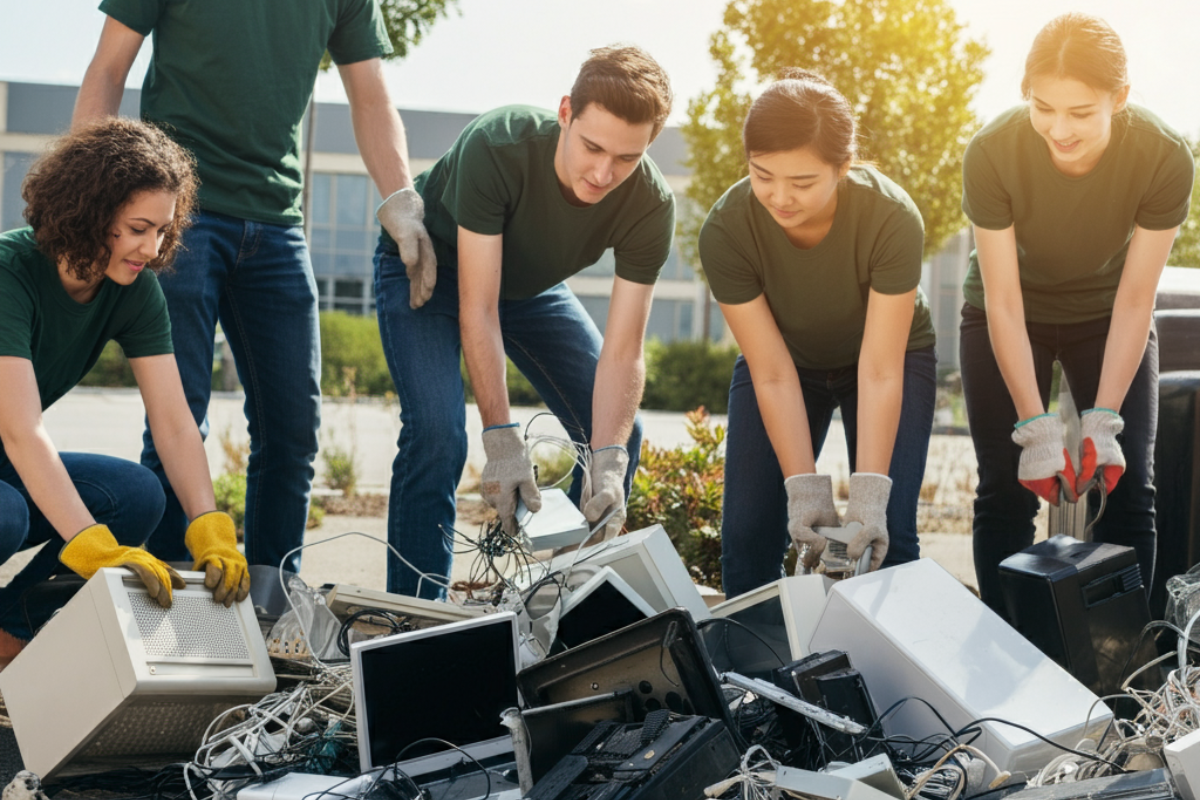
3. Material Recovery: The recovered materials are then processed to extract valuable resources like gold, copper, and aluminum, reducing the need for extracting natural resources.
4. Proper Disposal of Hazardous Materials: Any hazardous substances are handled and disposed of according to strict environmental regulations, minimizing the environmental impact.
This process supports the circular economy by giving materials a second life and keeping hazardous substances out of landfills.
Why Recycling Gaming Equipment Matters
Recycling your old gaming equipment is a simple but powerful way to make a positive impact on the environment. By understanding what constitutes gaming e-waste, knowing where to recycle it, and familiarizing yourself with the recycling process, you can ensure that your old gear is handled responsibly.
The next time you upgrade your gaming setup, remember that those outdated game systems and accessories can still serve a purpose. By properly managing hazardous wastes and choosing responsible waste management solutions, you’re not just clearing out clutter; you’re contributing to a healthier planet. Whether it’s through recycling facilities, take-back programs, or donations, every action helps minimize e-waste and its environmental impact.


